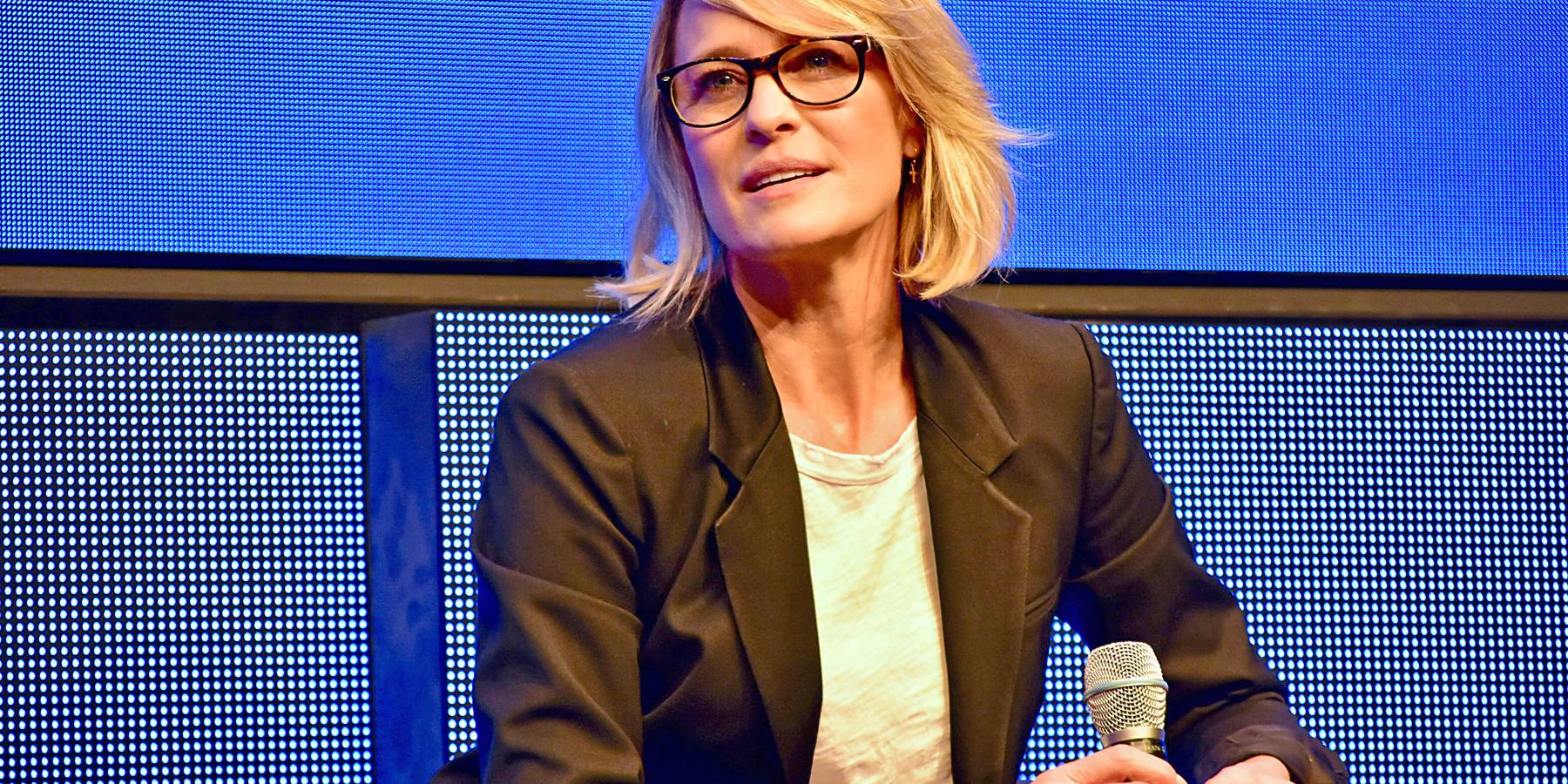
Opinion
Robin Wright Is Only Responsible For Her Experiences
The "House of Cards" star speaks out about Kevin Spacey and #MeToo.
09 July 2018

The "House of Cards" star speaks out about Kevin Spacey and #MeToo.
In a new TODAY Show interview, Robin Wright spoke to anchor Savannah Guthrie for the first time about the sexual assault accusations surrounding her former House of Cards co-star, Kevin Spacey.
Wright has been noticeably silent since the news emerged that Spacey was fired from the hit Netflix series last November, after actor Anthony Rapp detailed an alleged non-consensual encounter between the two. Since then, three more accusers have since come forward with reports about encounters with Spacey. This, of course, has been one of many stories that have now come to light in Hollywood in the #MeToo movement.
When the news first broke, many were critical of Wright's silence, and speculation around how much she knew about Spacey's culpability swirled in the online rumor mill. Because the duo played a political power couple onscreen, the most popular assumption that the two were close friends in real life reigned, and so Wright must have known about Spacey's alleged indiscretions.
Though multiple people who on the House of Cards set described Spacey making inappropriate comments and groping younger men on set, Wright denied knowledge of those actions and distanced herself from Spacey, telling TODAY: "I didn't know the man. I knew the craftsman." When Guthrie presses for more information about what Wright knew, she further insists that her relationship with Spacey was entirely professional: "We were coworkers. We never socialized outside of work. We had a respectful, professional relationship."
Wright also made clear that she had her own experience of Spacey, and perhaps more important, that she too has experienced a #MeToo moment of sexual harrassment. "Of course," she said when asked. "Who hasn't?"
What's important to consider here is how women who are in relation to men accused of abuse (or even when abuse has been proven) are often expected to come forward with what they know as soon as it happens. As a reminder, American society (and societies across the world) teaches women not to speak out about their experiences with sexual assault. The Rape, Abuse, and Incest National Network (RAINN) reports that one in six American women experience attempted sexual assault in their lifetime. One in four have been raped.
Even in the case of Spacey's accusers, who are male, the stigma around speaking out is differently focused, and some might say greater (RAINN reports that one in ten men have experienced attempted sexual assault, with many not reporting because of fear of how they might be perceived as "less than a man," or how it may challenge ideas around sexual orientation).
But let's be clear: women bear the brunt of shame related to sexual assault, with 91% of survivors being female and only 63% of them reporting their assaults to the police, according to the National Sexual Violence Resource Center. And though false reports of sexual violence remains low (between 2 and 10%, the NSVRC reports), women also bear the brunt of being accused of lying, whether they come forward or not. None of this takes into account external factors around coming forward, whether you're a victim, survivor, or a witness to assault as a woman, such as how racial perceptions and socioeconomic status affect one's ability to speak out.
The idea that Wright would or should speak out immediately after knowing about Kevin Spacey's indiscretions posits that she should also be willing to place her career and reputation on the line, something she's worked hard to build. If you'll recall, Meryl Streep was similarly accused of a type of dishonesty around her associations with Harvey Weinstein, who produced many films she starred in. The question was and still is, always, "How could she not know?" It assumes, again, that women couldn't possibly have just professional relationships with these men, divorced from knowledge of personal imprudence. In Wright's case, as she told Guthrie, she "doesn't even know how to reach him [Spacey]."
Why must there be something more? Why can't we believe accusers and the women who know abusers, but don't know of the abuse? Do we not trust that if Wright, or Streep, or any woman in that position knew more, that they wouldn't do something about it?
Granted, sometimes it does occur that privileged women in power, or just people in general feel inclined to protect men accused of abuse, and there's more than "fear of losing their jobs" weighing into that consideration. Complicity is real in cases involving sexual harassment and assault, and when silence is used as a tool to cover up what is obviously criminal, it can be dangerous to the point of fatality. The mantra, "If you see something say something" applies here. It seems that Wright is genuinely of the "I don't know her" camp, and I feel inclined to believe her.
Robin Wright clearly knows how and when to use her power: she is playing the president in the last season of House of Cards, something that had always been on the table, according to the show's producers, and furthermore, directing the series finale. Maybe we can just enjoy that, and focus more on pursuing justice for Spacey's alleged victims and survivors. Donate to RAINN, which among numerous other services, provides live, anonymous crisis support to survivors nationwide.
Photo via Getty